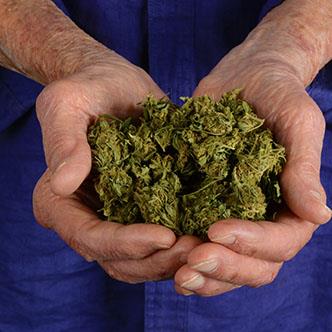
By CardioSmart News
We may not yet fully understand the effects of marijuana on the heart, but there are concerning health hazards and changes to how heart medications work when the drug is used, say authors of a review article published last month in the Journal of the American College of Cardiology.
With increased legalization on the state level—marijuana is now legal in 11 states and Washington, DC—recreational use is expected to continue to rise. Experts estimate that over 2 million people with heart disease use or have used marijuana. With marijuana becoming more potent as well as more readily available to American adults, finding out how the drug affects the heart and interacts with medications taken to treat heart disease is important.
Medical marijuana is used to treat certain non-cardiovascular health issues. As of July 2019, medical marijuana was legal in 33 states.
According to authors, with wider availability has come increased reports of the negative health effects of cannabis use. A large-scale national survey revealed that most marijuana users (over 75%) smoke the drug. Smoking marijuana harms the cardiovascular system in a similar way as smoking tobacco does. Vaping marijuana also presents health hazards, due to the potential for lung injury and respiratory problems that can be caused by that method of intake.
More broadly, marijuana has been observed to take a toll on the heart and vascular system in various ways, affecting blood pressure, arrhythmias, and heart attack and stroke risk. Key medications used to treat a variety of heart conditions are affected by marijuana use. Statins, betablockers, warfarin are all on that list.
Authors encourage clinicians to routinely screen patients for marijuana use—especially younger patients who experience early-onset heart events or heart failure in locales where the drug is widely available. They say clinicians and patients should discuss frequency, methods of intake, and other drug usage. Also recommended is advising patients to quit or at least limit use, especially for those with high cardiovascular disease risk.
Marijuana is classified as a controlled substance by the U.S. Drug Enforcement Agency, which makes conducting high-quality research problematic. However, by shedding light on what has been observed so far and the gaps in knowledge, the authors advocate for more awareness and further research to improve patient care in this area.
Read the original article in the Journal of the American College of Cardiology.
Learn about CardioSmart's editorial process. Information provided for educational purposes only. Please talk to your health care professional about your specific needs.